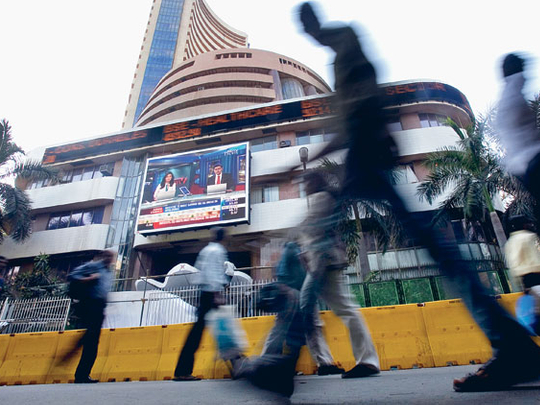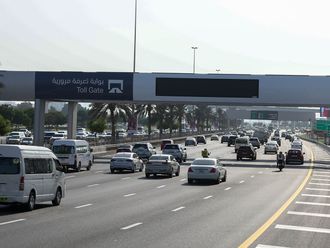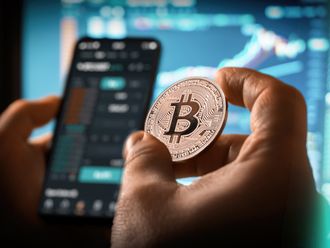
Mumbai: Inflation worries and the possibility of an increase in interest rates could hobble Indian shares this week after New Delhi bit the bullet and freed petrol pricing from government control and raised prices of diesel and cooking gas.
After many failed attempts, the ruling Congress party-led coalition on Friday allowed petrol prices to move in tandem with world oil prices. It is the first step towards full deregulation of fuel pricing in energy-hungry India and should help the government slash its heavy subsidy bill and help improve energy efficiency.
"It is an important step in making India a more efficient, global player," said Kaushik Basu, the chief economic adviser to the finance ministry. "It will rationalise the way we spend money, the kinds and amount of energy we use, and the cars we manufacture."
Shares in oil producer Oil and Natural Gas Corp and refiners Indian Oil Corp, Bharat Petroleum Corp and Hindustan Petroleum Corp — all state-run companies that have been forced to bear a part of the subsidy burden — jumped on the announcement as the move would boost their earnings.
Rapid expansion
It would also enable private-sector companies like Reliance Industries and Essar Oil to rapidly expand their fuel stations across the country and provide stiffer competition to state firms, which in the longer run will help the consumer.
"We already have in place plans to increase significantly the number of retail fuel outlets that we have," Naresh Nayyar, chief executive officer of Essar Oil's parent company Essar Energy, said in a statement. "This decision creates a level playing field between government-owned and private-sector fuel retailers."
However, there are pitfalls for the near term.
"Given that the impacted fuels have a weight of 5.44 per cent in the wholesale price index, the measures would impact infl ation by one percentage point," Citigroup said in a report. "Besides that, it will also impact the prices indirectly as the transportation cost will go up."
With the wholesale price index already up an annual 10.16 per cent in May, India will have to brace for an extended period of double-digit inflation. All central banks are wary of inflation and the Reserve Bank of India (RBI) may well have to raise interest rates before its scheduled policy on July 27.
Ramya Suryanarayanan, an economist at DBS Group, said the decision to raise fuel prices may prompt the RBI to increase interest rates by a quarter-percentage point before the next scheduled meeting. The central bank had raised rates by 50 basis points in two moves in March and April to douse inflation pressure.
"Inflation and interest rates will be on top of the mind for investors," said equity trader Rahul D'silva. "There could be some cooling off in the immediate term, but the reform is a positive in the longer term."
Freight is a major cost factor for most commodities that have to be transported. The fuel price rise will increase the cost by at least six per cent for cement makers, according to analyst Rupesh Sankhe at Angel Broking.
Early gains
"Companies may not be able to pass on the hike to consumers till the end of the monsoon, so I expect about a 25 basis points impact on cement margins," he said.
The top-30 Sensex shed early gains and ended little changed last week at 17,575.53, but is up 3.7 per cent in June on the back of foreign equity inflows of $2 billion.
The government is hoping robust economic growth — the International Monetary Fund has forecast 8.8 per cent expansion this year, above New Delhi's expectation of 8.5 per cent — and good monsoon rains would help bring down food prices.
The authorities are also hoping the rupee will strengthen and help bring down the cost of oil imports.
"Sentiment has turned more positive for the rupee as long-end implied volatility has fallen precipitously from extreme levels at the end of May," Andy Ji, a strategist in Singapore at Royal Bank of Scotland, said in a research note. "This reflects growing confidence in the longer-term prospects of the Indian economy."
RBS, the world's fifth-biggest foreign-exchange trader, has predicted the rupee will rise within this year to 44 per dollar, a level last seen before Lehman Brothers Holdings went bankrupt in September 2008.
The rupee climbed 0.5 per cent on Friday to 46.2875, trimming the week's loss to 0.2 per cent.
The India Meteorological Department said on Friday the June-September annual rains, which deliver 75-90 per cent of total rainfall, would be 102 per cent of the average over the past 50 years. Last year, the rains were the worst in 37 years and had damaged crops and caused a spike in food prices.
The writer is a journalist based in India.












